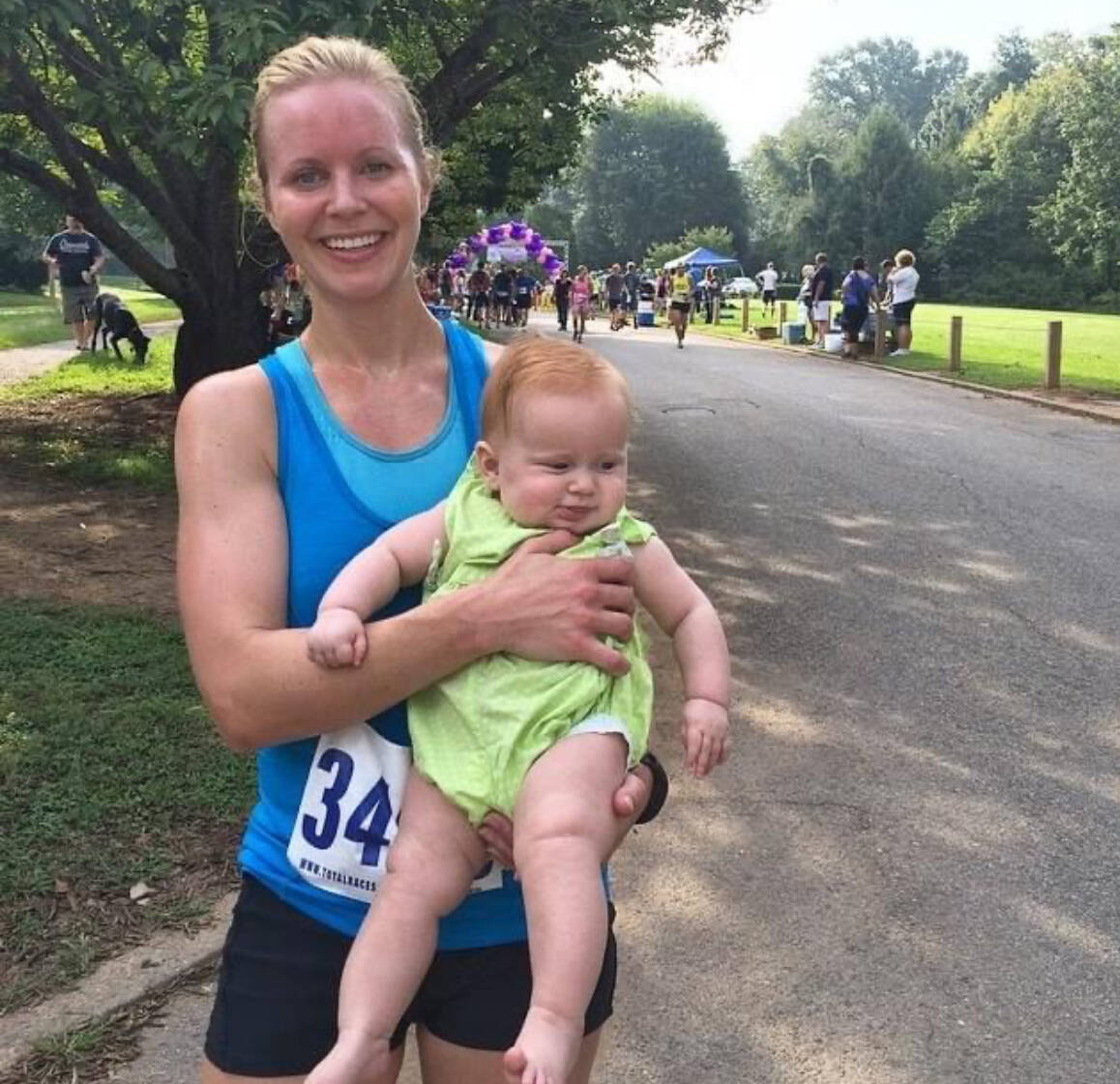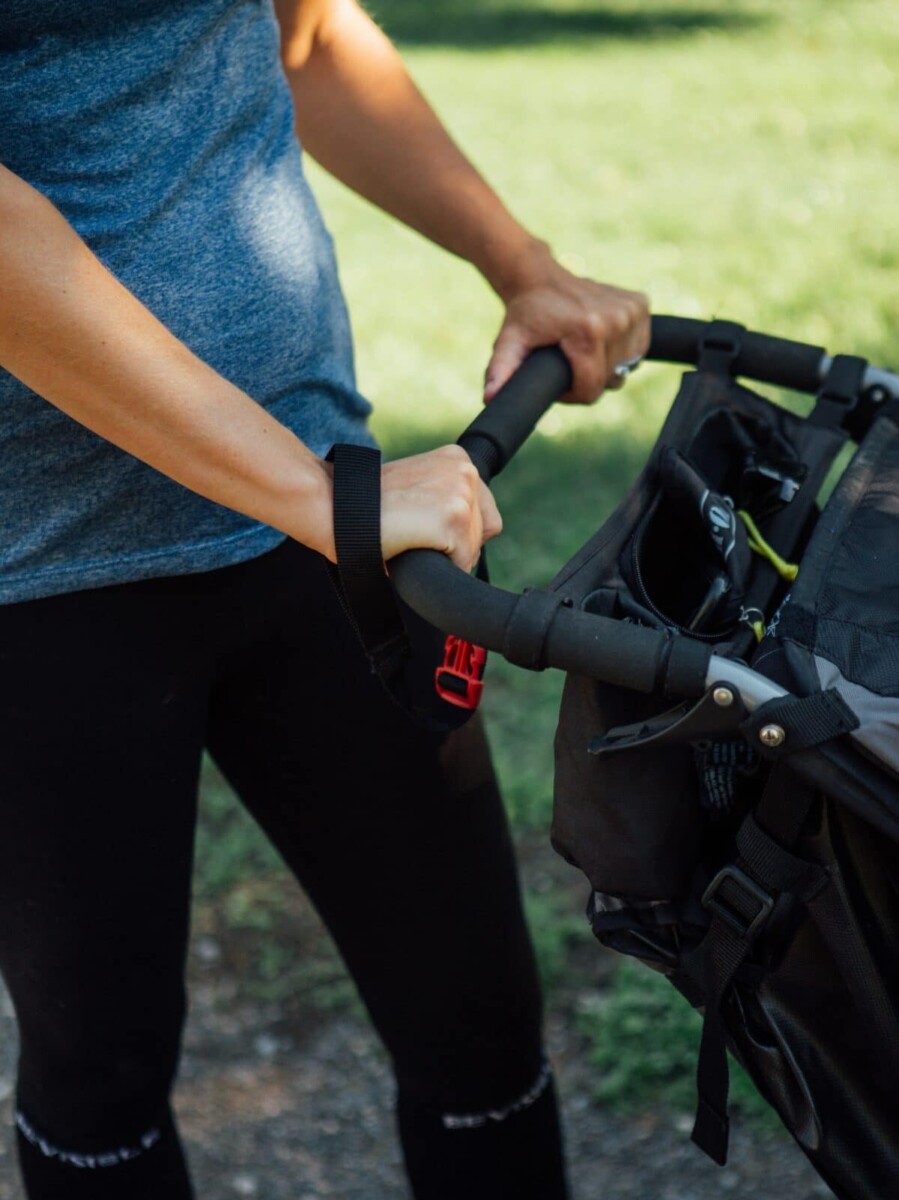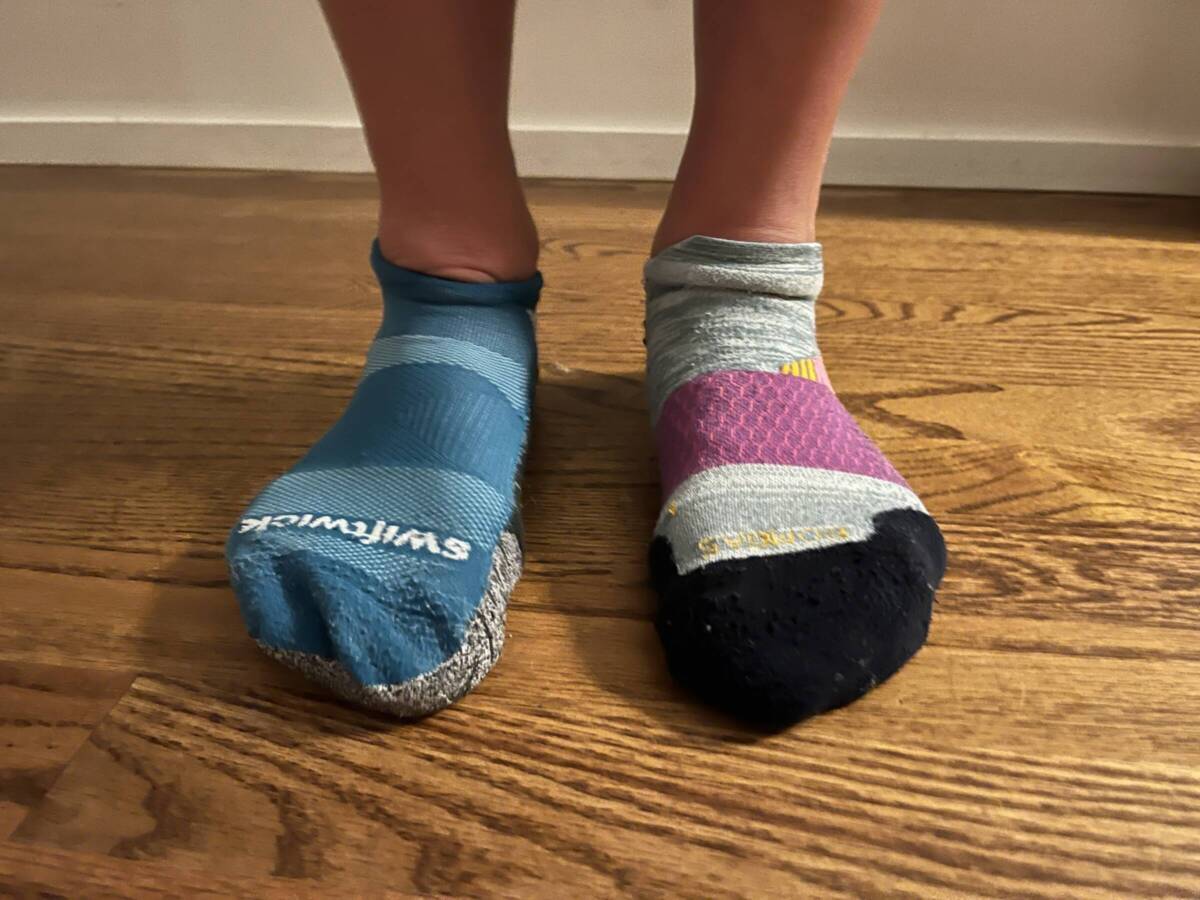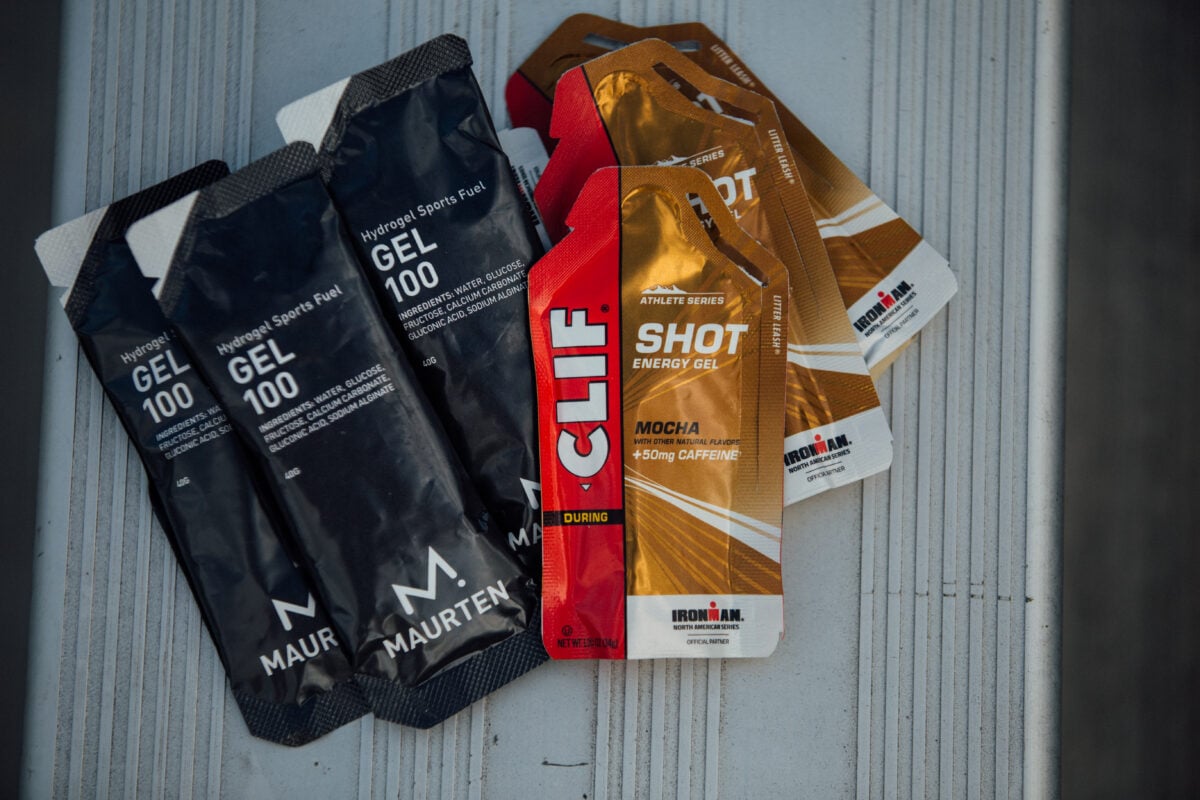Does Working Out Affect Milk Supply?
Does working out affect milk supply? It has long been believed that running can hurt your milk supply. But registered dietitians say if you are eating and drinking enough, you will retain your milk supply! Read on to learn how to fuel both your running and your baby!

There is a myth that working out and breastfeeding are a bad match Why? Because there is this misconception that your body can’t do both—exercise and make milk. But that’s wrong and breastfeeding runners don’t have to stress! They just need to pull a seat up to the table—to eat, eat, eat, and eat again…and pack copious amounts of snacks everywhere they go.
I am kind of kidding—kind of not. The key to exercising while nursing is fueling your body sufficiently and maintaining adequate hydration. But how much is enough?
Table of contents
I got with the experts: registered dietitians Melanie Sulaver, who specializes in working with postpartum women, and Megan Robinson, who works with runners, to find out how much you need to eat and drink to keep working out while breastfeeding. I also connected with Dr. Jaclyn van Nes, OBGYN, for her insights on the topic of exercise and milk production.
So, let’s get ready to bust the myth and unpack the facts to answer: does working out affect milk supply? Let’s go!
Understanding Milk Supply
It is believed that not getting enough calories will affect your milk supply because your body simply doesn’t have the energy to produce it. After all, food is fuel and fuel is energy. Obviously, working out like running burns calories so you need to have energy for both your exercise and milk production.
But your “workout doesn’t directly impact your milk supply,” says Sulaver. “As long as you are you keeping up with your calories and hydration,” adds Robinson.
If you don’t eat enough, you may suffer from “relative energy deficiency syndrome” or REDs—which means your body doesn’t have the energy to do all that it should, so it cuts the nonessentials such as making milk. (This is what happens when female athletes miss their periods).
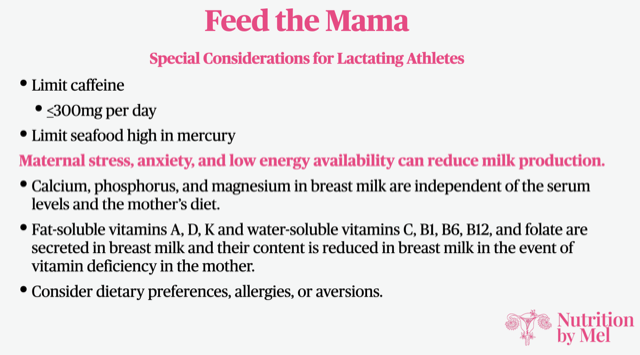
Sulaver, who specializes in working with female athletes, continues that what does impact milk supply is stress, anxiety, and low energy availability. “Collectively we need to better support women in re-nourishing their bodies in the postpartum period which includes repleting depleted micronutrient stores in addition to total energy intake in support of birth itself, lactation and then the energetic demands that come with returning to running.”
Countless studies show how exercise can lower stress and anxiety, and boost mood. We want breastfeeding runners to not feel stressed every time they lace up their shoes. Instead, we want them to know how to nourish their bodies so that they can do what’s best for their health—and their baby’s.
The Impact of Exercise During Breastfeeding
Research does not show that exercise during breastfeeding can hurt your milk supply. In fact, research shows that exercise can improve your milk supply and even the health of your baby!
For example, one study found that aerobic exercise performed four or five times per week beginning six to eight weeks postpartum had no adverse effect on lactation and significantly improved the cardiovascular fitness of the mothers.
Another study found that postpartum exercise increased milk supply by providing a feeling of relaxation and freshness which can help the hormones aoxytocin and prolactin work optimally to produce breast milk.
What’s more—there is research to show that exercise increases the hormone adiptonectin which can increase the growth of the baby!
Some studies have shown that exercise before breastfeeding can increase lactic acid levels in the milk and make babies fussy. However, other research has been conducted to refute that—even exercise at intense levels!
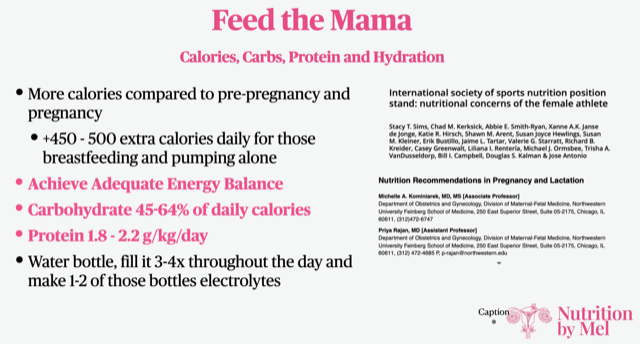
Considerations for Nursing Mothers
So, how do you ensure you are eating and drinking enough to support your exercise and milk production? Registered dietitian Robinson weighs in.
Eat at least 1800 calories a day.
Robinson recommends lactating runners consume no less than 1800 calories a day to support the demands of their lives.
Let’s unpack this: Breastfeeding can burn up to 400-600 calories per day and running which can burn approximately 100 calories per mile. So, if a runner is running 5 miles and breastfeeding they can be in a calorie deficit up to 1000 calories.
This doesn’t mean the breastfeeding runner has to eat an additional 1000 calories to prevent weight loss, explains Robinson. But “if you are not eating enough energy for just daily living, taking care of an infant, and exercise, this will result in a calorie deficit causing weight loss and/or a decrease in breast milk supply.”
Sulaver adds that breastfeeding runners training for a marathon likely do need to eat about 750-1000 extra calories a day. “Fueling for the things we ask of our body has GOT TO BE NORMALIZED!” she says.
Drink at least 128 ounces of fluid a day.
Non-exercise breastfeeding women need at least 16 cups (128 oz.) of fluid per day.
A breastfeeding runner needs more based on their weight, sweat rate, weather, distance and intensity of their run, etc.
Robinson says runners can test out their sweat rate after running a long run (over 1 hour) to see how much sweat they lose to better understand how much to drink to rehydrate.
- For every pound weight lost during a long run (over 1 hour) this translates to 16 ounces of fluid.
- After exercise, you need to rehydrate 1.5 times the volume lost, so instead of replacing every pound with 16 ounces of fluid, you would need to replace it with 24 ounces of fluid.
- Rehydration can take place over a 4-hour period and not all at once.
- For example, if you lose two pounds during a long run, you would need 48 ounces of fluid to help rehydrate you and maintain adequate milk supply.
Aim to drink about 3-5 gulps of fluid every mile you run, and pre-hydrate with about 16 ounces of a sports drink before heading out.
Look for signs of low milk supply.
If your baby isn’t pooping or peeing as often, hasn’t gained weight, or has signs of dehydration, your milk supply could be low. Trust that maternal instinct and talk to your doctor—and your pediatrician—if you are concerned.
Adjust your exercise routine.
Some moms have a difficult time eating enough to support all they are doing. Dr. van Ness experienced this. “I struggled to keep up with the calorie intake to maintain adequate breastfeeding and exercise. I made it work but my calorie intake had to be purposeful and my exercise was decreased,” she shared (who has run many miles since!).
If you are feeling fatigued and running (and everything else feels hard), it may be worth cutting back your running volume for a short while until the demands upon your body are less.
Working with a running coach such as myself can help you adjust your training schedule so that you are moving forward, rather than back.
What to Know Before Working Out and Breastfeeding
The key to ensuring you are maintaining your milk supply is to fuel to meet the demands of your body, says Sulaver. She offers these helpful tips for busy mamas.
Plan ahead.
If you’re in your third trimester have a nesting party, set up a meal train for yourself, make some slow cooker soups and stews (meat on the bone, including potatoes) and freeze them.
Prep snacks.
Set up a snack station in all the spots you may get nap trapped.
Go carb crazy.
Prioritize starcher carbs (oatmeal, breads, rices, pastas, whole grains, plantains).
Level up your nutrition.
Make sure you are getting sufficient calcium, magnesium, and phosphorus to support the maternal skeleton because regardless of your diet the baby will get what they need from your milk. If you aren’t eating enough of these nutrients then they will leech from your body (increasing the risk for osteoporosis, osteopenia, and stress fractures). (I write more about this here).
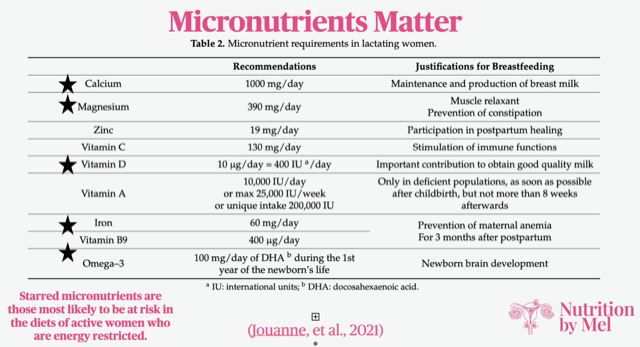
Have water, water everywhere.
Join the Stanley club and have those trendy bottles everywhere so you are always well-hydrated—even when nap-trapped. (Figuring out the potty situation is a subject for another article..)
Use a breastfeeding calculator.
A breastfeeding calculator can recommend the best daily calorie intake for you to meet the demands of your breastfeeding and running.
Exercise and Milk Production Recapped
So, does exercise lower milk supply? Only if you aren’t eating and drinking enough to do both. It can be difficult to get enough food as a new mom living a very unpredictable life.
It’s likely your body will tell you when you are doing too much and need to cut back by feeling fatigued, having a higher heart rate, and feeling unmotivated to run.
The key to being a breastfeeding runner is to take good care of yourself so you can take good care of your baby. That means doing what feels good (like running!), sleeping as much as you can, and nourishing your body.
RDs like Sulaver and Robinson can help if you are nervous about running and breastfeeding—and a run coach like me can help you scale your postpartum running in a sustainable way.
Did you worry about milk supply and exercise?
Download a Free Postpartum Running Plan »


